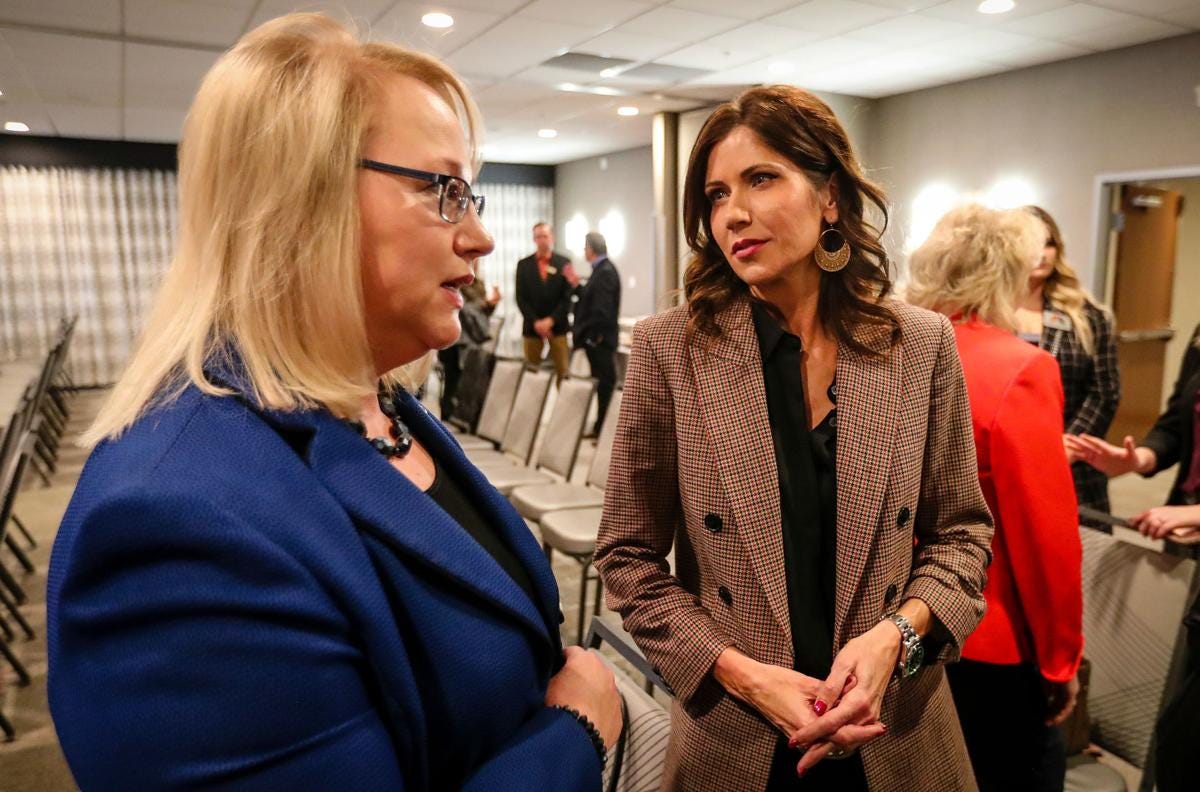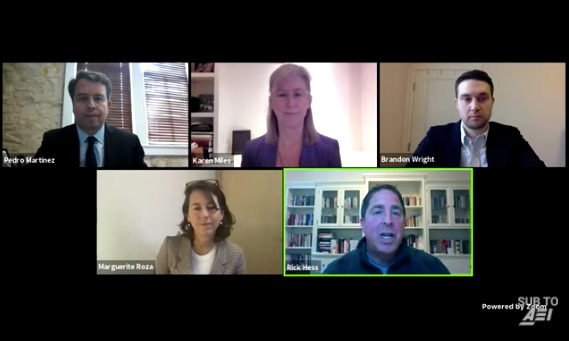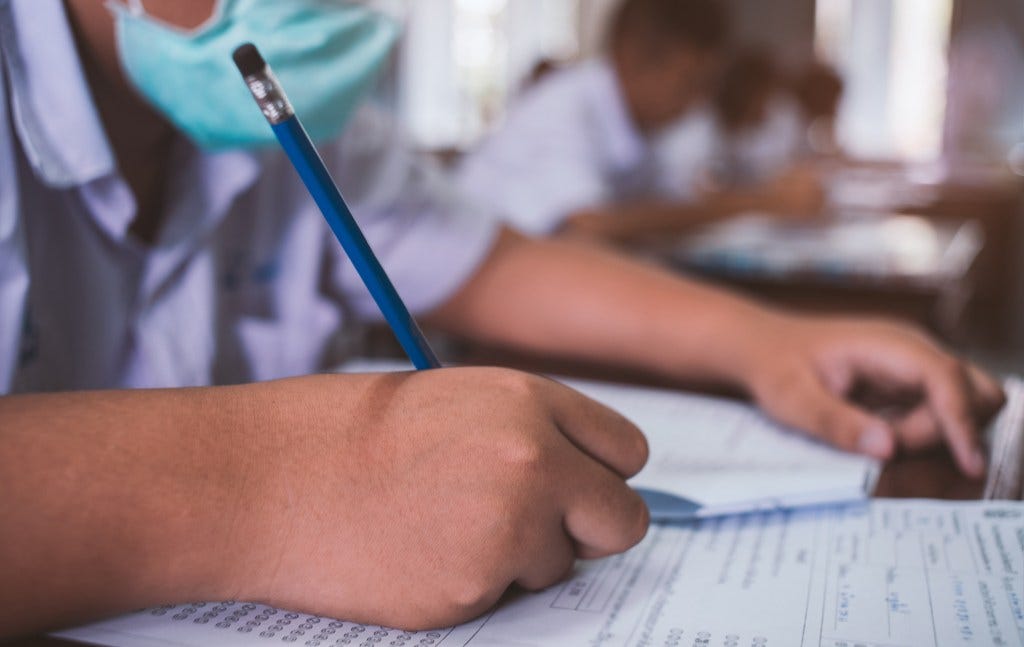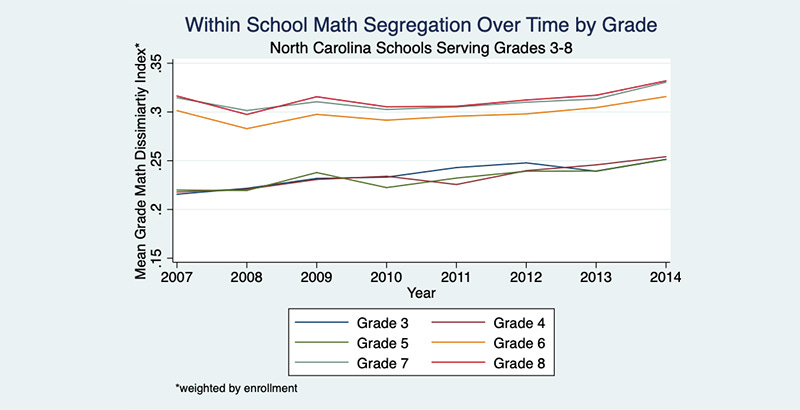Growing up on the Oregon coast it always seemed like the gray, rainy days in January and February went on forever. I remember visiting this exact spot in winter during big storms and feeling the exhilaration and fear while facing the powerful ocean alongside rocky beach cliffs.
Today, we are all experiencing similar fight-or-flight feelings. While there is some hope in our communities about reopening schools, teachers being vaccinated, and maybe even children receiving vaccines in summer, each day seems to expose another crisis for which we must respond. Unfortunately, our dysfunctional governance systems that have kept many communities from receiving services is exponentially worsened by the pandemic. As legislators across the country take up new bills this winter and Congress begins proposing solutions for the US, I hope we will provide space to identify, evaluate, and disrupt the inequities and myths that many of us, from both sides of the aisle, have contributed to over the past decade.
FEDERAL FUNDING
The inauguration of President Biden and Madame Vice President Harris was a groundbreaking moment for our country and move towards federal action. In one week we have seen Biden sign a variety of executive orders that will influence K12 education, the House Committee on Education and Labor propose a package of funding bills to address reopening schools and learning recovery, and a cohesive focus on racial equity and social justice from our nation’s capitol.
U.S. Department of Education Announces Biden-Harris Appointees | USED
Biden’s Aid Proposal Could Face Rough Road in Congress | NCSL
On His First Day in White House, Biden Dissolves Trump’s 1776 Commission on U.S. History | The74
House Education and Labor Committee introduces a package of education recovery bills | ED&Labor
STATE AND LOCAL POLICY
We are in a post-election era. State and local leaders are determining how to absorb the impact of the civic unrest we’ve collectively experienced. Many education leaders and policy experts are proposing new expectations around civic and media literacy curriculum. Regardless of where this ends up, one thing is for certain: the students who have observed and engaged in the events of this past year are well-suited to lead our country as advocates and social change-agents in the near future.
Establishing decision-making framework critical in helping principals navigate difficult choices | EdDive
State Leaders Empower Students to Be Active Digital Citizens | ECS
Gov. Noem seeks $900,000 to revise U.S. history curriculum in state's public schools | ND
Covid Response and Budget Basics at Forefront for States | Route Fifty
REOPENING SCHOOLS
Recent conversations about reopening schools across the country are revolving around a few key factors. First, many are awaiting a federal push for resources that will allow district leaders to expense the necessary costs of reopening (i.e. PPE, sanitation, air filtration, transportation). Second, there is confusion about the order of operations by which decisions are made (i.e. staffing and labor negotiations or student registration). And, finally, it is unclear how the churn of policies, teachers, and family concerns will impact students’ academic progress well into the next decade.
Biden Details Plan for Reopening Schools | US News
Executive Order on Supporting the Reopening and Continuing Operation of Schools and Early Childhood Education Providers | The White House
Biden's gambit: Will schools be ready to reopen in 100 days? | EdDive
Cleveland Pledges to Reopen Schools March 1: Vaccine Shortages Complicate Return to Classrooms | The74
Pandemic Parent Survey Finds Perverse Pattern: Students Are More Likely to Be Attending School in Person where Covid Is Spreading More Rapidly | Education Next
Teachers’ unions, collective bargaining, and the response to COVID-19 | AEFP
Chicago returns to fully remote learning as union, district fail to reach deal | EdDive
Biden administration developing school safety standards for reopening during COVID-19 pandemic | ABC News
D.C. To Start Vaccinating Teachers, Police Next Week | DCist
LEARNING RECOVERY
Our schools are nearing the one-year anniversary of pandemic-impacted education. Some educators are receiving vaccines, children may be on the state vaccination plans soon, and we have an opportunity to pull out of this year with more data, better plans, and increased community support for our North Stars. This requires that all stakeholders get behind a few key pieces of the puzzle, like funding decisions for next school year, learning recovery plans backed by research evidence, and how federal support will get services to students and families at warp speed.
Credit recovery isn’t enough: How to manage a surge of failing course grades | Evidence Project
Studies of Distance Learning | IES WWC
Remote Learning Is Here to Stay: Results from the First American School District Panel Survey | RAND
ASSESSMENT AND ACCOUNTABILITY
School districts across the country are negotiating how to determine students’ learning progress this year. We have some information, like grades, which are mostly subjective — especially with the impact of COVID factors like access to broadband and devices. As such, many states are considering administering shortened summative assessments as a moderate approach to required end-of-year annual testing. More importantly, now is a moment for assessment experts and state leaders to consider how we can disentangle assessments from accountability to truly modernize our future systems.
How Nebraska Teachers Use and Perceive Summative, Interim, and Formative Data | IES
Implementing and Scaling Multiple Measures Assessment in the Context of COVID-19 | Center for the Analysis of Postsecondary Readiness
Without statewide testing data California will fall short in supporting student learning | CalMatters
Applications for New Authorities; Innovative Assessment Demonstration Authority | USED
DeVos balked at more state testing waivers. What will Biden's Ed Dept do? | EdDive
EQUITY AND ENGAGEMENT
State and local leaders will rely on accurate data about educational inequities post-COVID. Researchers and advocates are starting to frame solutions for modernizing and studying these reporting practices. The way we report and discuss the data post-COVID by our historically underserved students will have an impact on the bipartisan policies we intend to put in place, as well.
Panel Offers Recommendations On How Best to Recruit and Retain Faculty of Color | Diverse Higher Education Issues
12 M US students remain disconnected in digital divide | EdDive
Accurate Student Poverty Data Is Crucial to Supporting All Students | DQC
NYC Sees Steep Drop in Babies and Toddlers With Disabilities Getting Services During Pandemic | Chalkbeat
UPCOMIG EVENTS
Tuesday, February 2 (3 PM ET) AEI webinar on The Next Conservative Early Childhood Education Agenda.
Wednesday, February 3 (2 PM ET) CCSSO webinar on A Nation of Readers: How State Chiefs Can Help Every Child Learn to Read.
Dr. Christine M. T. Pitts serves as Manager of Research and Evaluation at Portland Public Schools. As an Oregonian, raised by a multicultural family of educators, she brings a decade of progressive strategic leadership experience, a transformative vision, and analytic skill to crafting state education policy. An educator and researcher by training, she has conducted legislation, governance, and policy analyses on a wide array of education issues using social network analysis and mixed methods research. In addition, Dr. Pitts is a facilitative leader who deeply understands and co-constructs local and national partnerships across stakeholder groups. Dr. Pitts currently coordinates between state and national policy leaders to investigate and advocate for policies that prioritize racial equity in education. Christine lives with her husband and four children in Portland, Oregon. Follow her on Twitter @cmtpitts.











